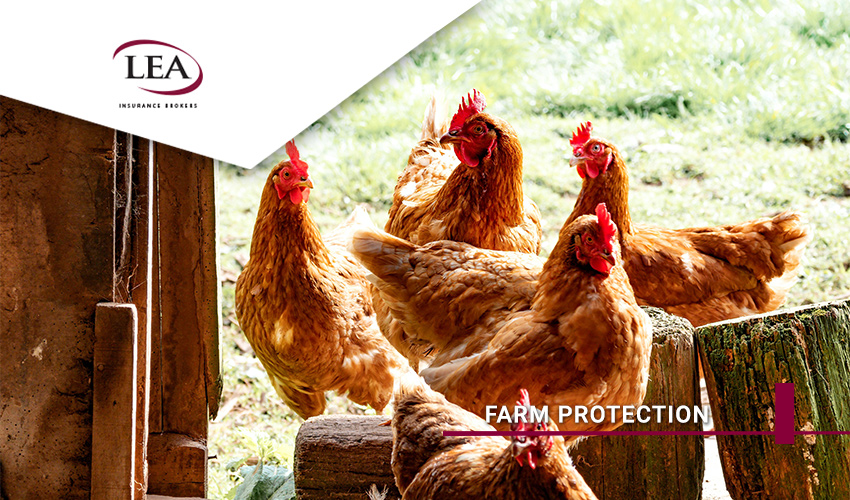
Could you be running your hobby farm better?
The pandemic shutdowns have made many of us think about investing in a hobby or lifestyle farm.
Small farms aren’t as profitable as larger ones, but they compare well to the average Australian household on income, debt, and net wealth. That’s good to know if you were considering making your hobby farm your principal residence.
Whether you see your hobby farm as a business or not, it pays to have solid systems in place and to keep compliant with a raft of laws and regulations.
Get your records in order
When you buy a hobby farm, you may decide not to run it as a business with the intention of making a profit. If you were, the Australian Tax Office would see you as a ‘primary producer’. You may be able to claim primary production losses on your income tax if you earn $40,000 from other sources, excluding net capital gain.
So, you know the mantra, ‘if you don’t measure it, you can’t improve it’. Relying on your memory can be unreliable, particularly as you’ll need particular records to prepare your tax. Good record keeping boosts your farm’s technical and financial efficiency, meaning you’ll make better decisions. They’ll be handy should you apply for government support, too.
Create a system to suit you, whether it’s a pocket notebook, paper files, computer or cloud-based app. They’ll feed into your balance sheet, cash flow, and income statements. Get to know those in your region with similar farms so you can benchmark the performance of your own and be more competitive. Use that to analyse your operations and plan for improvement. Consider keeping records on:
- Livestock – note upkeep costs of your animals to compare with your sales value
- Crops – type, when you seed, how much and often you apply fertilisers and herbicides, harvesting
- Equipment purchases and the maintenance fees
- Costs such as fuel, fertilisers, irrigation water, animal feed, related training, farm loan repayments, insurances, and other fees, personal expenses to run the farm, etc.
- Income from produce, stock, hay bales, even paying guests if you run a BnB, for example.
Know about biosecurity and compliance
Biosecurity regulations apply even to a small farm holding. You’re obligated to take action to control or minimise pests, diseases, weeds as well as contaminants under the Biosecurity Act 2015, plus spinoff regulations from local land services.
For example, not controlling invasive weeds in most parts of Australia could see you fined. As well, ensure you register your farm animals using the National Livestock Identification System. Understand what the biosecurity risks are from this risk assessment fact sheet. You can also get insights into biosecurity, meat, and food inspection compliance and enforcement from a national level here.
Make room for innovation
With a robust record keeping system and an eye on compliance issues, you have a foundation to run your hobby farm as a business. A whole-farm management plan is a useful tool – this checklist can get you started.
Consider how technology – agtech – can lift your farm management. The local school might even have a drone photography business, such as this award-winning one from rural Victoria. Start small and reach out to your local land services, Landcare, nearby university, or TAFE college to see if your farm can hook into a trial project. You could expand your farm-gate produce options by moving into community supported agriculture. Locals buy ‘shares’ or pay you a fee for a regular box of fresh, locally grown produce.
The government is deploying eight Adoption and Innovation Hubs across regional Australia, aiming to help harness research and drive innovation towards drought resilience.
Being mindful of your risks
No matter what the size of your farm, the risk factors include:
- Vehicles, machinery, guns
- Quad bikes – find out more about their safer use
- Animals – your stock and feral creatures
- Chemicals such as pesticides and herbicides
- Water including tanks and dams which could attract visiting children
- Distance from medical help in emergencies.
Regularly walk around your farm to spot possible issues, and methodically record (and address) near misses, incidents, and accidents. Carry out a farm safety self-assessment.
Customised cover
We can discuss with you how to better manage your risk profile to protect you, your assets, and those who visit or stay on the farm. A farm insurance policy can protect your:
- Assets including your residence, contents, etc.
- Equipment – if lost, for example
- Infrastructure, such as irrigation, sheds, workshops, stables if they’re damaged in a fire or storm
- Livestock against theft
- Produce through product liability cover
- Liability should someone be injured, killed, or have their property damaged due to your farming operations.
Each hobby farm is unique, so we can tailor a policy package to just what you need.
